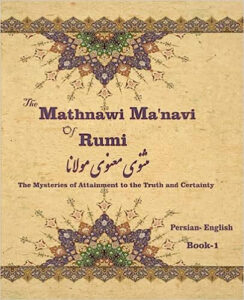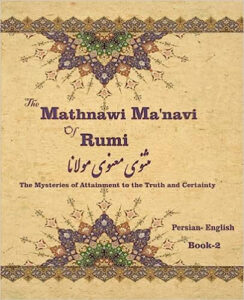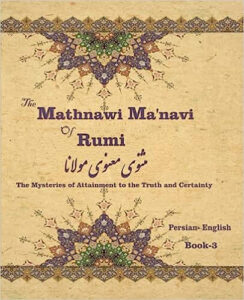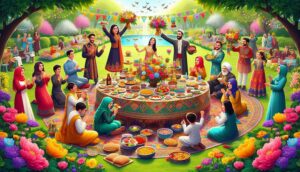The Masnavi, the magnum opus of the Persian poet and Sufi mystic Jalal al-Din Rumi, explores a multitude of spiritual themes, among which the concept of the afterlife is profoundly significant. Rumi delves into the nature of life after death with a unique blend of poetry, allegory, and mysticism. This article provides a concise exploration of Rumi’s perspectives on the afterlife as depicted in the Masnavi.
Table of Contents
ToggleThe Afterlife in Sufi Philosophy
In Sufism, the afterlife is not merely a continuation of existence but a transformative journey towards divine union. Rumi, as a Sufi mystic, perceives death not as an end but as a return to the divine source. This perspective is central to his spiritual teachings and is eloquently expressed throughout the Masnavi.
Rumi’s Symbolism of the Afterlife
The Metaphor of the Nightingale and the Rose
Rumi frequently uses the metaphor of the nightingale and the rose to illustrate the soul’s relationship with the divine. The nightingale, representing the soul, yearns for the rose, which symbolizes God. This longing is a recurring motif in his poetry, signifying the soul’s desire for reunion with the divine. Death, in this allegory, is the nightingale’s final flight towards the eternal garden where it meets the rose, signifying a return to the divine presence.
The Story of the Reed
Another poignant metaphor Rumi uses is the story of the reed in the opening verses of the Masnavi. The reed, separated from the reed bed, symbolizes the soul’s separation from its divine origin. The plaintive notes of the reed flute express the soul’s sorrowful longing for reunion with the divine. The ultimate reunion, or the soul’s return to God, is what Rumi envisions as the essence of the afterlife.
The Nature of the Soul’s Journey
Death as a Transformation
In Rumi’s view, death is not a cessation but a transformation. It is a shedding of the physical form, allowing the soul to transcend earthly limitations. The afterlife, therefore, is a state of liberation and purification, where the soul can attain true knowledge and unity with God.
The Concept of Unity and Multiplicity
Rumi often reflects on the concept of unity and multiplicity in relation to the afterlife. He believes that while the physical world is characterized by multiplicity and division, the afterlife represents a return to unity. The soul, which experiences separation and longing in the material world, finds ultimate peace and unity in the divine afterlife.
Moral and Ethical Implications
The Consequences of Actions
Rumi’s teachings also emphasize the moral and ethical implications of one’s actions in this life. He suggests that the state of the soul in the afterlife is influenced by the actions and intentions in the earthly realm. Good deeds, spiritual practices, and sincere devotion lead to a favorable state in the afterlife, whereas negative actions may hinder the soul’s journey towards divine union.
Spiritual Preparation for the Afterlife
Rumi encourages his followers to prepare for the afterlife through spiritual practice and moral integrity. He believes that the awareness of the afterlife should inspire individuals to live righteously, with compassion, humility, and love. The Masnavi serves as a guide for spiritual seekers, providing wisdom on how to purify the soul and prepare for the journey beyond.
Conclusion
Rumi’s Masnavi offers a rich and nuanced perspective on the afterlife, blending poetic beauty with profound spiritual insights. For Rumi, the afterlife is not a distant or abstract concept but an intimate reality that informs and shapes one’s spiritual journey. Through his use of metaphors and allegories, he provides a comforting and inspiring vision of death as a return to divine unity. This perspective encourages readers to reflect on the transient nature of life and the eternal nature of the soul, guiding them towards a life of spiritual awareness and preparation for the ultimate reunion with the divine.









